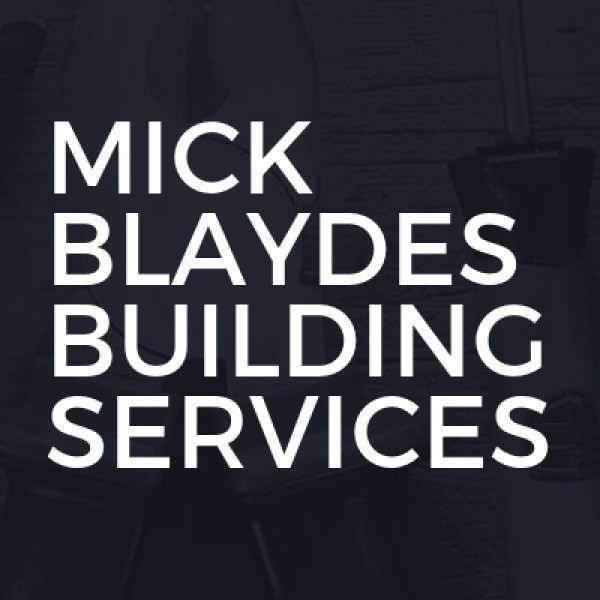Loft Conversions in the UK
Bebuddy Group LTD: Your Trusted Builders in Lichfield and Staffordshire
Welcome to Bebuddy Group LTD, where we p... read more »
Manson Electrical Solutions Ltd is a premier choice for those seeking expert electricians and builders in Ludden... read more »
Welcome to Nikollas Developments Ltd, your go-to experts for all construction needs in Higham Hill and the vibrant Waltham Forest area of... read more »
P31 Carpentry Ltd is a premier carpentry and building company located in Hillfields, dedicated to serving the bustling c... read more »
Welcome to Buildcore Home Improvements, your go-to experts for all construction needs in Elmesthorpe and throughout Leicestershire. With... read more »
Mick Blaydes Building Services is a distinguished construction company based in Buckland End, offering a comprehensive r... read more »
Welcome to Rose Garden Buildings Ltd, your go-to experts for all building and renovation services in Apsley and the wider Hertf... read more »
Welcome to Synergy Building Services Ltd, your trusted partner for exceptional building solutions in Yeading and throughout Hillingdon, L... read more »
Welcome to Churchview Building Driveways & Landscapes, your premier choice for all construction and landscaping needs in Adderley Green a... read more »
Able Refurbishments Ltd: Premier Tradespeople in Ewell and Surrey
Welcome to Able Refurbishments Ltd, the leadin... read more »
Welcome to Coleshill Carpentry, your go-to experts for all building and carpentry services in Annwell Place, Derbyshire. With over thirty... read more »
J J Kelly & Sons Ltd is a distinguished family-run business nestled in the vibrant community of Round Greenread more »
Welcome to AGKBUILD LTD, your trusted partner for exceptional extension builders and property maintenance services in Colindale, Barnet,... read more »
Welcome to Vison Construction Services Ltd, your go-to experts for all building and property services in Oakington and througho... read more »
Welcome to Christian Construction Services Ltd, your trusted partner for top-notch construction services in Church End, Barnet,... read more »
Welcome to Belmont Projects Ltd, your premier choice for builders and construction services in High Town and throughout Bedfordshire. Spe... read more »
Welcome to March Property & Construction Ltd, the leading experts in Extension Builders, Renovations, New Build... read more »
Sallaku Building Services is a premier choice for all your construction and renovation needs in Brentford End, proudly s... read more »
Staffordshire Construction Ltd is a premier construction company based in Dudley, offering top-notch building services a... read more »
SMR Building Contractors Ltd, nestled in the vibrant area of Bromley Park, stands as a beacon of excell... read more »
Search Loft Conversions by county
- Loft Conversions in London
- Loft Conversions in Bedfordshire
- Loft Conversions in Berkshire
- Loft Conversions in Bristol
- Loft Conversions in Buckinghamshire
- Loft Conversions in Cambridgeshire
- Loft Conversions in Cheshire
- Loft Conversions in Cornwall
- Loft Conversions in County Durham
- Loft Conversions in Cumbria
- Loft Conversions in Derbyshire
- Loft Conversions in Devon
- Loft Conversions in Dorset
- Loft Conversions in East Riding of Yorkshire
- Loft Conversions in East Sussex
- Loft Conversions in Essex
- Loft Conversions in Gloucestershire
- Loft Conversions in Greater Manchester
- Loft Conversions in Hampshire
- Loft Conversions in Herefordshire
- Loft Conversions in Hertfordshire
- Loft Conversions in Isle of Wight
- Loft Conversions in Isles of Scilly
- Loft Conversions in Kent
- Loft Conversions in Lancashire
- Loft Conversions in Leicestershire
- Loft Conversions in Lincolnshire
- Loft Conversions in Merseyside
- Loft Conversions in Norfolk
- Loft Conversions in North Yorkshire
- Loft Conversions in Northamptonshire
- Loft Conversions in Northumberland
- Loft Conversions in Nottinghamshire
- Loft Conversions in Oxfordshire
- Loft Conversions in Rutland
- Loft Conversions in Shropshire
- Loft Conversions in Somerset
- Loft Conversions in South Yorkshire
- Loft Conversions in Staffordshire
- Loft Conversions in Suffolk
- Loft Conversions in Surrey
- Loft Conversions in Tyne and Wear
- Loft Conversions in Warwickshire
- Loft Conversions in West Midlands
- Loft Conversions in West Sussex
- Loft Conversions in West Yorkshire
- Loft Conversions in Wiltshire
- Loft Conversions in Worcestershire
Understanding Loft Conversions
Loft conversions are a brilliant way to maximise the space in your home without the need for a costly extension. By transforming an unused attic into a functional room, you can add significant value to your property. Whether you're considering a new bedroom, office, or playroom, a loft conversion can be a practical solution to your space needs.
The Benefits of Loft Conversions
There are numerous advantages to converting your loft. Firstly, it can increase your home's value by up to 20%, making it a wise investment. Additionally, it provides extra living space without sacrificing garden area or requiring planning permission in most cases. Loft conversions are also typically less disruptive than other types of home renovations.
Financial Gains
Investing in a loft conversion can be financially rewarding. Not only does it enhance your living space, but it also boosts your property's market value. This increase can be particularly beneficial if you plan to sell your home in the future.
Space Optimisation
Loft conversions make the most of your home's existing structure. By utilising the attic, you can create additional rooms without altering the footprint of your house. This is especially advantageous in urban areas where space is at a premium.
Minimal Disruption
Compared to other home improvements, loft conversions are relatively quick and cause minimal disruption to your daily life. Most of the work is contained within the attic, meaning you can continue to live in your home during the renovation process.
Types of Loft Conversions
There are several types of loft conversions, each with its own set of benefits and considerations. The most common types include dormer, hip-to-gable, mansard, and roof light conversions. Choosing the right type depends on your budget, the existing roof structure, and your personal preferences.
Dormer Loft Conversion
A dormer loft conversion is one of the most popular options. It involves extending the existing roof to create additional headroom and floor space. Dormers can be added to various parts of the roof and are suitable for most types of homes.
Hip-to-Gable Loft Conversion
This type of conversion is ideal for semi-detached or detached houses with a hipped roof. It involves extending the sloping side of the roof to create a vertical wall, providing more space and headroom.
Mansard Loft Conversion
Mansard conversions are typically more extensive and involve altering the entire roof structure. They provide a significant amount of additional space and are often used in terraced houses. However, they usually require planning permission due to the extent of the changes.
Roof Light Loft Conversion
Roof light conversions are the most cost-effective option as they involve minimal structural changes. They simply add windows to the existing roof, making them ideal for homes with sufficient headroom.
Planning and Regulations
Before embarking on a loft conversion, it's crucial to understand the planning and regulatory requirements. While many conversions fall under permitted development rights, some may require planning permission, especially if you live in a conservation area or a listed building.
Permitted Development
Most loft conversions are considered permitted development, meaning they don't require planning permission. However, there are limits on the size and scope of the conversion, so it's essential to check with your local planning authority.
Building Regulations
Regardless of planning permission, all loft conversions must comply with building regulations. These regulations ensure the safety and structural integrity of the conversion, covering aspects such as fire safety, insulation, and access.
Conservation Areas and Listed Buildings
If your home is in a conservation area or is a listed building, you may face additional restrictions. It's important to consult with your local authority and possibly seek the advice of a heritage consultant to ensure compliance.
Design Considerations
The design of your loft conversion is crucial to its success. Considerations include the layout, lighting, and access. A well-designed conversion can enhance the functionality and aesthetic appeal of your home.
Layout and Space Utilisation
Careful planning of the layout is essential to make the most of the available space. Consider how the room will be used and plan the placement of furniture and fixtures accordingly.
Lighting and Ventilation
Natural light and ventilation are key to creating a comfortable living space. Consider installing roof windows or skylights to maximise light and ensure adequate ventilation.
Access and Staircases
Access to the loft conversion is a critical consideration. The staircase should be practical and comply with building regulations. Spiral staircases can be a space-saving option, while traditional staircases offer easier access.
Cost of Loft Conversions
The cost of a loft conversion can vary significantly depending on the type, size, and complexity of the project. On average, a basic conversion can start from £20,000, while more extensive projects can exceed £50,000.
Factors Affecting Cost
Several factors influence the cost of a loft conversion, including the type of conversion, the size of the space, the materials used, and the location of the property. It's important to obtain detailed quotes from multiple contractors to ensure a fair price.
Budgeting and Financing
Proper budgeting is essential to avoid unexpected expenses. Consider all potential costs, including design fees, construction costs, and any additional expenses such as furniture and decoration. Financing options, such as remortgaging or personal loans, can help manage the cost.
Choosing the Right Contractor
Selecting a reputable contractor is crucial to the success of your loft conversion. Look for contractors with experience in loft conversions and check their references and previous work.
Research and Recommendations
Start by researching local contractors and asking for recommendations from friends and family. Online reviews and testimonials can also provide valuable insights into a contractor's reliability and quality of work.
Obtaining Quotes
Request detailed quotes from multiple contractors to compare prices and services. Ensure the quotes include all aspects of the project, from design and planning to construction and finishing touches.
Contracts and Agreements
Once you've chosen a contractor, ensure all agreements are documented in a contract. This should include the scope of work, timelines, payment schedules, and any warranties or guarantees.
Frequently Asked Questions
- Do I need planning permission for a loft conversion? Most loft conversions fall under permitted development rights, but it's best to check with your local planning authority.
- How long does a loft conversion take? The duration varies depending on the complexity, but most conversions take between 6 to 12 weeks.
- Can all lofts be converted? Not all lofts are suitable for conversion. Factors such as headroom, roof structure, and access need to be considered.
- Will a loft conversion add value to my home? Yes, a loft conversion can increase your home's value by up to 20%.
- What is the cheapest type of loft conversion? Roof light conversions are typically the most cost-effective as they require minimal structural changes.
- How do I ensure my loft conversion complies with building regulations? Hire a qualified architect or structural engineer to ensure compliance with all necessary regulations.
Loft conversions are a fantastic way to enhance your home, providing additional space and increasing property value. With careful planning and the right team, you can transform your attic into a beautiful and functional living area.
Send a message























